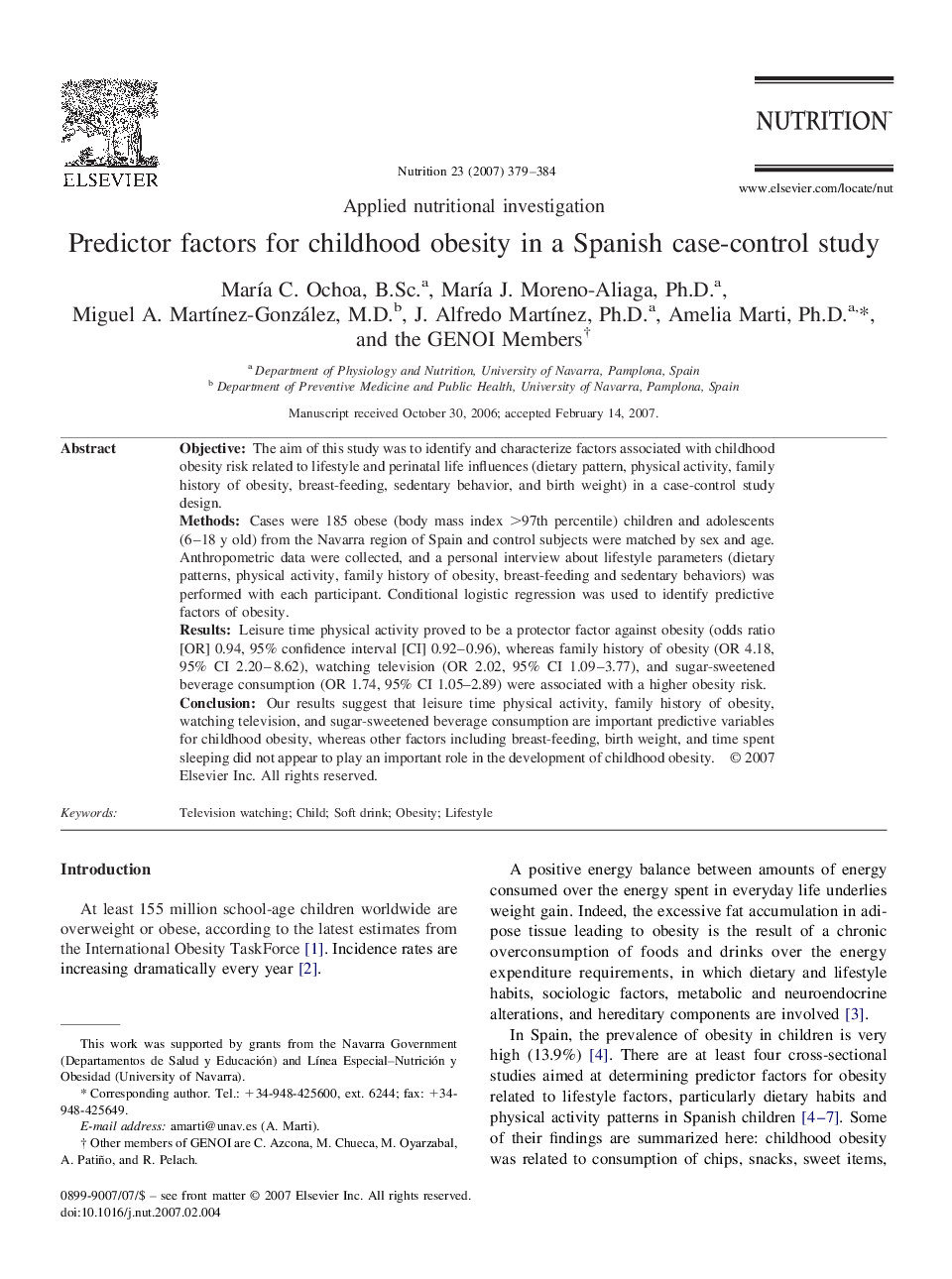| Article ID | Journal | Published Year | Pages | File Type |
|---|---|---|---|---|
| 3277484 | Nutrition | 2007 | 6 Pages |
ObjectiveThe aim of this study was to identify and characterize factors associated with childhood obesity risk related to lifestyle and perinatal life influences (dietary pattern, physical activity, family history of obesity, breast-feeding, sedentary behavior, and birth weight) in a case-control study design.MethodsCases were 185 obese (body mass index >97th percentile) children and adolescents (6–18 y old) from the Navarra region of Spain and control subjects were matched by sex and age. Anthropometric data were collected, and a personal interview about lifestyle parameters (dietary patterns, physical activity, family history of obesity, breast-feeding and sedentary behaviors) was performed with each participant. Conditional logistic regression was used to identify predictive factors of obesity.ResultsLeisure time physical activity proved to be a protector factor against obesity (odds ratio [OR] 0.94, 95% confidence interval [CI] 0.92–0.96), whereas family history of obesity (OR 4.18, 95% CI 2.20–8.62), watching television (OR 2.02, 95% CI 1.09–3.77), and sugar-sweetened beverage consumption (OR 1.74, 95% CI 1.05–2.89) were associated with a higher obesity risk.ConclusionOur results suggest that leisure time physical activity, family history of obesity, watching television, and sugar-sweetened beverage consumption are important predictive variables for childhood obesity, whereas other factors including breast-feeding, birth weight, and time spent sleeping did not appear to play an important role in the development of childhood obesity.
